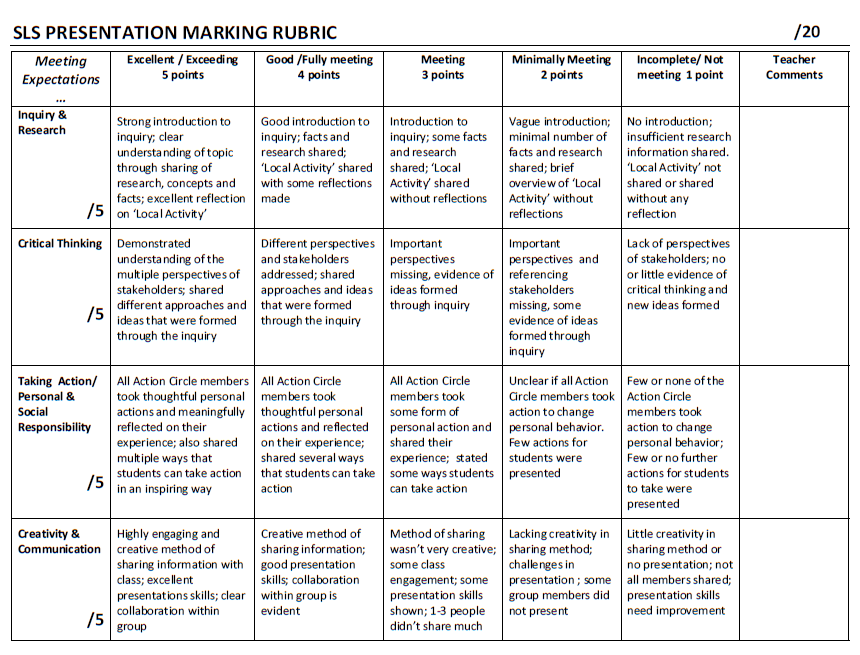Foods 10/11/12 Be the Change Project (Mrs. Robichaud)
How much do we know about the foods we eat? In this inquiry project you will be working in small groups (2 or 3 students) to research controversial foods and their impact on our health and the environment.
- First you will need to pick your partner and then decide on a topic from the following list.
- Next, you will need to complete the "Action pack" by researching the questions provided, using the research links below.
- Finally, at the end of your project, you will be expected to present what you've learned about your topic using one of the 11 options listed at the end of this webpage.
Research Links
1. Food Additives
How do food additives and preservatives in our processed food impact personal and environmental health?
2. Genetically Modified Organisms
How do GMOs in our food system impact our health and our environment?
3. Organics
How do the health and environmental impacts of organic foods compare with those of conventional foods?
4. Fresh and Local
What benefits are there to our personal, community, and environmental health from gardening and eating fresh, local produce?
5. The Story of Meat
How does industrial farming of animals and meat consumption impact our personal and environmental health?
6. Toxicants
How do toxicants in our personal and household products affect our health and that of our environment?
7. Plastics
What impact do plastics have on our health and our environment?
Presentation of Knowledge
Creative Format Options
1. A VERBAL TESTIMONIAL Acting as a stakeholder (person, community, animal, river, etc.) you tell your personal story about how important this topic is to you and how it can affect your life, positively and negatively. You could do it like a talk show where one interviews the other about your experience.
2. GRAPHIC DEPICTION Drawings that are labeled and explain the information you learned in the research. This could be pictures, images, a storyboard, timeline, and includes how you will make changes in your life.
3. MOCK DEBATE You and your partner present two points of view, or two stakeholders, showing the facts that support both sides in the issue.
4. PAINTING OR COLLAGE An artistic representation of what you learned in the research and how you will make changes in your life.
5. MOCK NEWSCAST You are a TV journalist on the scene of an environmental situation and you are interviewing both sides of the issue. For example, trees being cut down, industry’s waste going into a river, protesters with signs at a government office.
6. NEWSPAPER Create a newspaper page with various articles about both sides of the issue. You may include a cartoon that is relevant, a letter to the editor about the issue and columns with the scientific facts. Include what changes are needed to help with this issue in the world.
7. POEM/PROSE/SONG/RAP Present a piece of creative writing that expresses personal feelings and facts together around your issue/topic.
8. SKIT Act out a script to demonstrate your understanding of the issue/topic. Explain the stakeholders on both side of the issue and how you will change your life to help.
9. WEBSITE Create a well designed website that clearly leads the reader through the major issues, facts and opinions on this topic.
10. POWERPOINT/PREZI Create a visual presentation with strong images, graphs, even video, which complements and strengthens your verbal presentation. Remember to use images, not words!
11. VIDEO Create a video that describes the key points of the issue in a compelling way. This video can be an animation.
SLS:
1. A VERBAL TESTIMONIAL Acting as a stakeholder (person, community, animal, river, etc.) you tell your personal story about how important this topic is to you and how it can affect your life, positively and negatively. You could do it like a talk show where one interviews the other about your experience.
2. GRAPHIC DEPICTION Drawings that are labeled and explain the information you learned in the research. This could be pictures, images, a storyboard, timeline, and includes how you will make changes in your life.
3. MOCK DEBATE You and your partner present two points of view, or two stakeholders, showing the facts that support both sides in the issue.
4. PAINTING OR COLLAGE An artistic representation of what you learned in the research and how you will make changes in your life.
5. MOCK NEWSCAST You are a TV journalist on the scene of an environmental situation and you are interviewing both sides of the issue. For example, trees being cut down, industry’s waste going into a river, protesters with signs at a government office.
6. NEWSPAPER Create a newspaper page with various articles about both sides of the issue. You may include a cartoon that is relevant, a letter to the editor about the issue and columns with the scientific facts. Include what changes are needed to help with this issue in the world.
7. POEM/PROSE/SONG/RAP Present a piece of creative writing that expresses personal feelings and facts together around your issue/topic.
8. SKIT Act out a script to demonstrate your understanding of the issue/topic. Explain the stakeholders on both side of the issue and how you will change your life to help.
9. WEBSITE Create a well designed website that clearly leads the reader through the major issues, facts and opinions on this topic.
10. POWERPOINT/PREZI Create a visual presentation with strong images, graphs, even video, which complements and strengthens your verbal presentation. Remember to use images, not words!
11. VIDEO Create a video that describes the key points of the issue in a compelling way. This video can be an animation.
SLS:
Marking Rubric
SLS PRESENTATION MARKING RUBRIC

